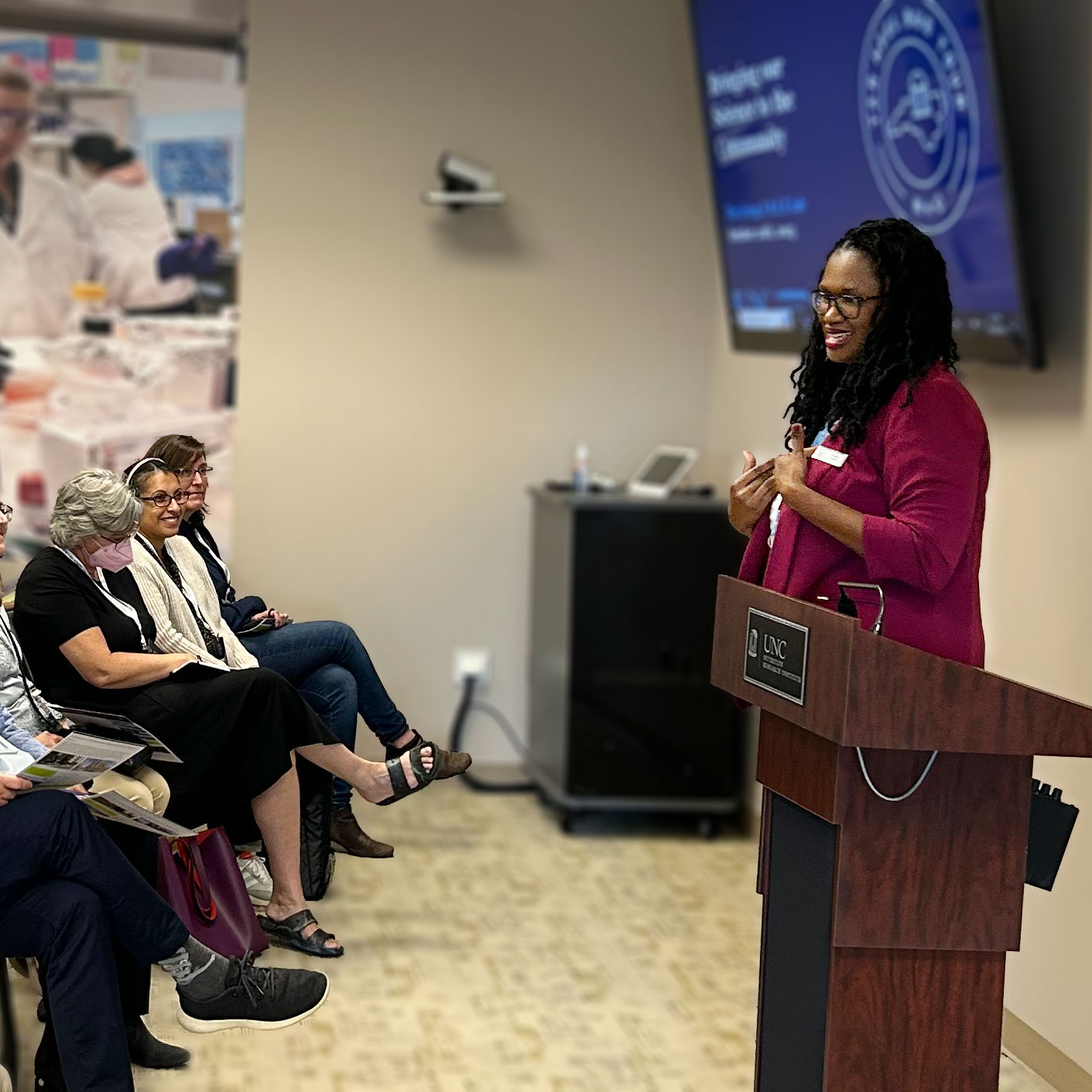Beyond Weight Loss: What Patients Really Need
[post_date]

Rachel W. Goode, PhD, MPH, LCSW is an Associate Professor at the School of Social Work and an Adjunct Assistant Professor in the Center for Eating Disorder Excellence, Department of Psychiatry, University of North Carolina at Chapel Hill.
Her lab works to develop, implement, and evaluate equitable and community-engaged interventions to treat obesity and eating disorders.
When it comes to body weight, no single story or strategy fits all. Conversations about weight and health are evolving, as more clinicians and researchers seek to support individuals in ways that reflect both scientific evidence and patient-centered care. In a new commentary published in the Journal of the Academy of Nutrition and Dietetics, UNC Nutrition Research Institute (NRI) researcher Rachel Goode, PhD, MPH, LCSW, and colleagues propose a broadened approach to weight inclusivity. This updated model incorporates body autonomy, self-determination, and harm reduction as guiding principles for equitable and effective care.
While current weight-inclusive models such as Health at Every Size (HAES) have helped shift attention away from weight loss as a singular goal, they often do not provide enough flexibility for individuals seeking care for complex, real-world concerns. Patients may have a range of reasons for wanting to change their weight, whether related to mobility, metabolic health, or quality of life. These motivations deserve to be met with nuance and respect.
The authors argue that it is time for weight-inclusive clinicians to expand the model to better support this diversity of goals. That includes respecting a client’s right to explore weight-management strategies, provided the approach is grounded in evidence, addresses risks responsibly, and promotes long-term well-being.
“Weight stigma doesn’t impact everyone the same way,” said Goode. “People live in different bodies with different pressures. And sometimes, the desire to lose weight isn’t always about stigma—it may be wanting to walk without pain, lower blood pressure, or avoid a disease that runs in the family. We need to meet people where they are.”
For example, if a patient expresses interest in weight loss, clinicians using this expanded framework would still screen for disordered eating and body image concerns. But they would also discuss a range of safe, evidence-based options. These could include medical nutrition therapy, GLP-1s, or bariatric surgery, always with full transparency about benefits, limitations, and potential risks.
This approach honors the foundation of weight-inclusive care while encouraging clinicians to expand their response to better support individual goals. In practice, it means recognizing that weight loss may be a meaningful health goal for some individuals, and ensuring those efforts are supported with care that is collaborative and evidence-based, rather than rooted in rigid models like prescriptive dieting, weight-focused metrics, or one-size-fits-all behavioral plans.
As the NRI continues to lead in the field of individualized nutrition, this work also highlights a broader shift in the health care landscape. It reflects a move toward listening more deeply, responding more flexibly, and ultimately helping people define health on their own terms.
“There’s no universal roadmap to health,” Goode explained. “But we can build a better system when we stop assuming what people want and start asking.”
This expanded vision of weight inclusivity aligns with the NRI’s mission to improve lives through personalized nutrition. It moves us toward a future where all individuals, regardless of body size, background, or biology, have the opportunity to pursue health in ways that are both effective and empowering.
Share on Socials
Inspired
By What You Read?
NRI scientists are discovering how genes, environment, and microbiome affect our individual requirements for nutrients so that, soon, medical practitioners will be able to guide people in their health from childhood through old age without adding to these tragic numbers. Our critical research depends on the generosity of people like you.
